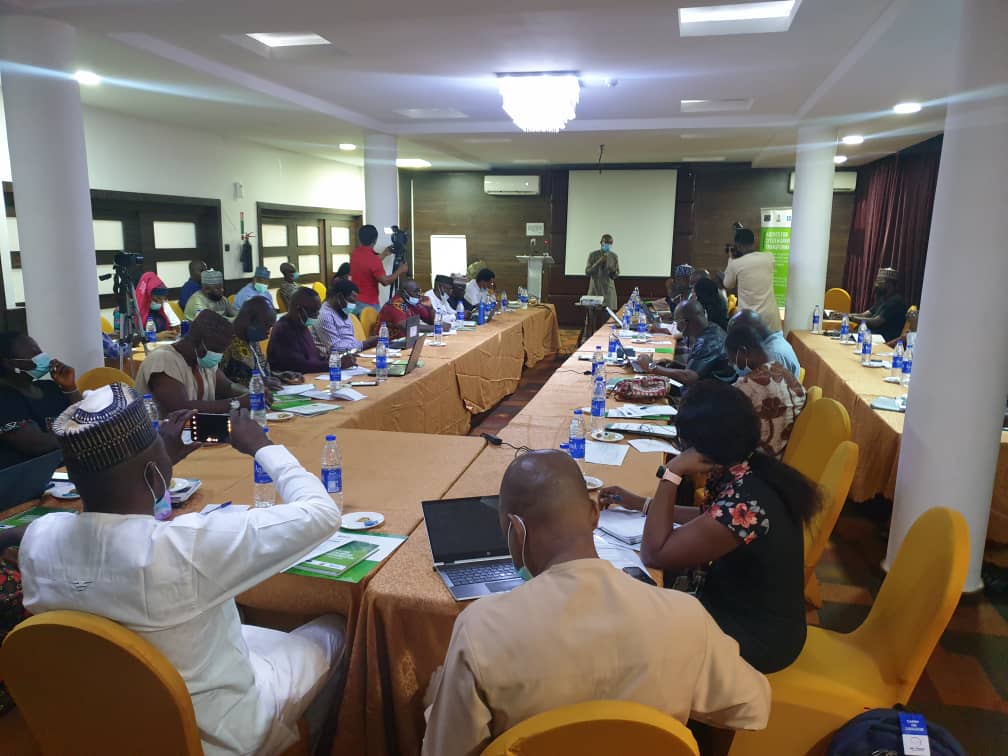Godsgift Onyedinefu
Civil Society Organisations (CSO) operating in Nigeria says a self-regulatory framework that would ensure that the sector executes its mandate transparently and efficiently is underway.
This was disclosed on Wednesday at the meeting of the General Assembly(GA) National Technical Committee (NTC)and Advisory Council on CSO Self-regulation in Nigeria organised by the British Council in Abuja. The NTC, GA and Advisory Council on CSO Self-Regulation are co-facilitated by the European Union Agents for Citizen-Driven Transformation (EU-ACT) Programme and the USAID Strengthening Civic Advocacy and Local Engagement (SCALE) Programme.
Speaking at the event, Harry Udoh, Chairman, NTC on Civil Society Self-regulation, explained that the decision to develop a framework is informed by the need to build the eroding public trust in the civil society ecosystem. He expressed concern that critical stakeholders especially donors and the Nigerian government have scored CSOs performance low and the trust they have in the sector as well as public trust is eroding.
Udoh also disclosed that there is poor accountability in the management of funds and execution of projects and interventions in the sector.
These issues according to him, spurred attempts by the National Assembly to regulate the space, however, noted that the method adopted by the lawmakers is, however, constricting the civil space, hence the need to develop a self-regulatory model that will ensure that CSOs have the enabling environment to operate while also ensuring that they are responsible and accountable in delivering their mandate.
“Sometime in 2020, the EU identified state networks across the country and the discussions began early 2021 to build legitimacy on what we need to do and rebuild eroding public trust. Critical stakeholders like development partners and even the government feel that we have not done well. There have been several attempts by the National assembly to regulate the sector, but they have come at it from an uninformed position that seems to restrict the space for civil society to operate,” he said.
“So we thought that for us to respond to the fears that critical stakeholders have we need to ensure that we find ways to hold ourselves to some basic minimum standards of operations and ensure we also build the public trust needed, to give ourselves the legitimacy we need to continue to operate. Its the need to self-preserve and also to build the eroding public trust in the civil society ecosystem,
“We have gone round the country meeting with critical stakeholders, development partners and civil society organisations. We have identified various models of self-regulation and so we are meeting today to ratify the findings that we have gotten and thereafter we go ahead and validate.
We will start the validation immediately and we are hoping that the document will be ready before the end of April for adoption,” he added.

Abdusalam Bahamas, policy and governance advisor, who spoke on behalf of Lydia Odeh, Chief of Party, SCALE, added that the civil society space is expanding and more resources are available in the sector, which reiterates the need to self-regulate.
Olabisi Oluseyi, Executive Director, Nigeria Network of NGOs said the self-regulatory framework will ensure that CSOs audit accounts and send them to regulatory agencies in the country. “To curb corrupt practices, We are setting minimum standards on how we utilise funds and also create a feedback system to explain how we have used the funds,” he said.
Oluseyi however disclosed that one challenge non-profit organisations face in complying with other regulations in the country is the ambiguity of some Nigerian laws. “We need some clarity in some aspects of the law, to make it easy to ensure compliance,” he said.
In his remarks, Idem Udoekong, Component 2 Manager Agents for Citizen-Driven Transformation (EU-ACT) said the EU-funded programme is supporting CSOs to develop a regulatory framework that would create a more enabling environment. He noted that the regulatory framework can enable or disenable the civil society sector.
“We are also working with government regulators such as CAC, FIRS, NASS, among others. It’s important to work with the government for reforms,” he said.
